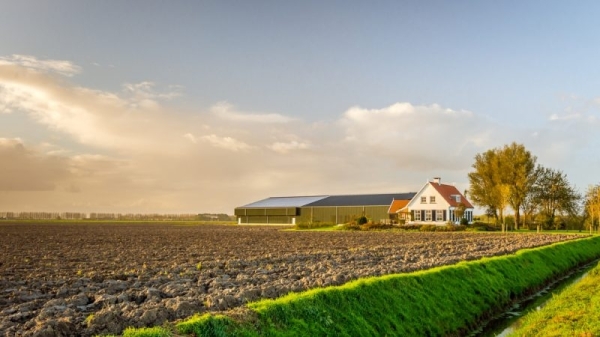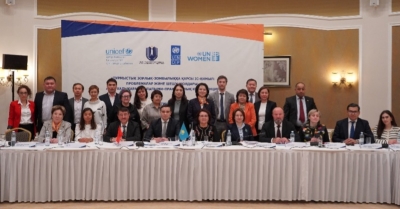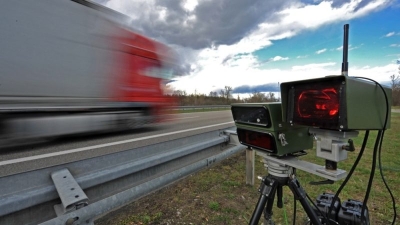Women in agriculture: choosing between child and cow

Prejudice, difficulties around pregnancy and childbirth, lack of financial security: German women in agriculture still face numerous obstacles when it comes to their work, according to a new study.
Funded by Germany’s Agricultural Ministry Ministry of Agriculture with money from the EU’s Common Agricultural Policy (CAP), researchers collected data over four years based on interviews with women working in various roles in the agricultural sector.
“I was surprised by how traditional and conservative this area of life and economy still is,” the research group’s project leader, Claudia Neu from the University of Göttingen, told EURACTIV.
There are “considerable barriers to entry for women in agriculture”, according to the study, which is the first to have gathered data on this topic on such a large scale in Germany.
In Neu’s view, the trend in agriculture regarding gender equality is going in the right direction, though progress has been too slow so far.
“Many, many women from all generations have told us that they have to fight prejudices, that they have to prove themselves again and again, and they have also reported sexualised violence,” the sociologist said.
“This should not be hushed up,” she added.
For example, prejudices about “women and technology” continue to play a major role, Neu explained. “Hard work, working with technology and in the field, is very much equated with masculinity,” she stressed.
Farm owners and successors, mostly men
Traditional gender roles, which sometimes persist in agriculture, also have far-reaching financial implications, according to the study that cites those who hold managerial positions on farms.
According to data from the government-owned Thünen Institute, only about one in ten farms in Germany is managed by a woman. Among designated farm successors, about 18% are women – meaning Germany lags behind other EU countries in terms of equality.
Especially in family farms, traditional inheritance structures often play a role, according to the study, along with a conventional distribution of roles within the family, in which the areas of responsibility of women and men are clearly separated.
“Complementary” couple relationship is what sociology calls this model – which is exactly what is still widespread in agriculture, Neu explained. This contrasts with an “egalitarian” approach in which both partners, at least in theory, share the tasks that arise.
At the same time, this means that many women are confronted with an additional workload of domestic and care work that arises alongside the work on the farm.
This abundance of different tasks, which are often difficult to time and coordinate, is experienced by many women as a burden, Neu explained.

German women still face ‘greater hurdles’ in EU farm fund access
German women tend to benefit less than men from the support programmes of the EU’s Common Agricultural Policy (CAP), Juliane Vees, the first vice-president of the German Association of Women in Agriculture, told EURACTIV Germany in an interview.
Children and farms are incompatible
At the same time, the few women who actually manage or take over farms believe their position not to be compatible with pregnancy, according to the study.
“Young women find themselves in a kind of role conflict between child and cow,” Neu explained. In the view of many women, pregnancy cannot be reconciled with the demanding work on the farm, which hardly allows for breaks and at the same time poses health risks such as zoonoses.
Many of the women interviewed said that they had “worked until shortly before the birth and again shortly after the birth” – the work on the farm just had to be done.
Meanwhile, according to the researchers, women who help out on family farms but do not have a formal role themselves, for example as farm managers, often struggle with a lack of social security.
“Agricultural businesses often tie up large amounts of capital, and as a result there can be large differences in wealth between individual family members or between partners,” the study says. Not always, but very often, this is at the expense of women.
Unequal ownership
Without appropriate provisions, such as a will or contractual agreements in divorce cases, women farmers may find themselves without financial security after their partner dies or they separate.
At the same time, women are often reluctant to insist on the establishment of such contractual safeguards vis-à-vis family members – or they are simply not aware of the actual ownership situation or their possibilities to secure it, Neu says.
“Here, women often simply negotiate badly,” she explained.
In the sociologist’s view, it could be helpful to do more educational work in vocational schools on ownership and social security, but also on health and safety at work.
Neu also appealed to farm managers to “also consider young women as farm managers or farm heiresses and not always think only of the son”.
At the same time, she stressed that women in agriculture themselves should also “think about their social security and demand their rights more courageously”.

Women farmers ‘essential’ for future, says French agriculture minister
An increasing number of women in France are entering the agricultural world, dominated by men for so long. EURACTIV France takes a closer look at the role of women farmers in the country.



